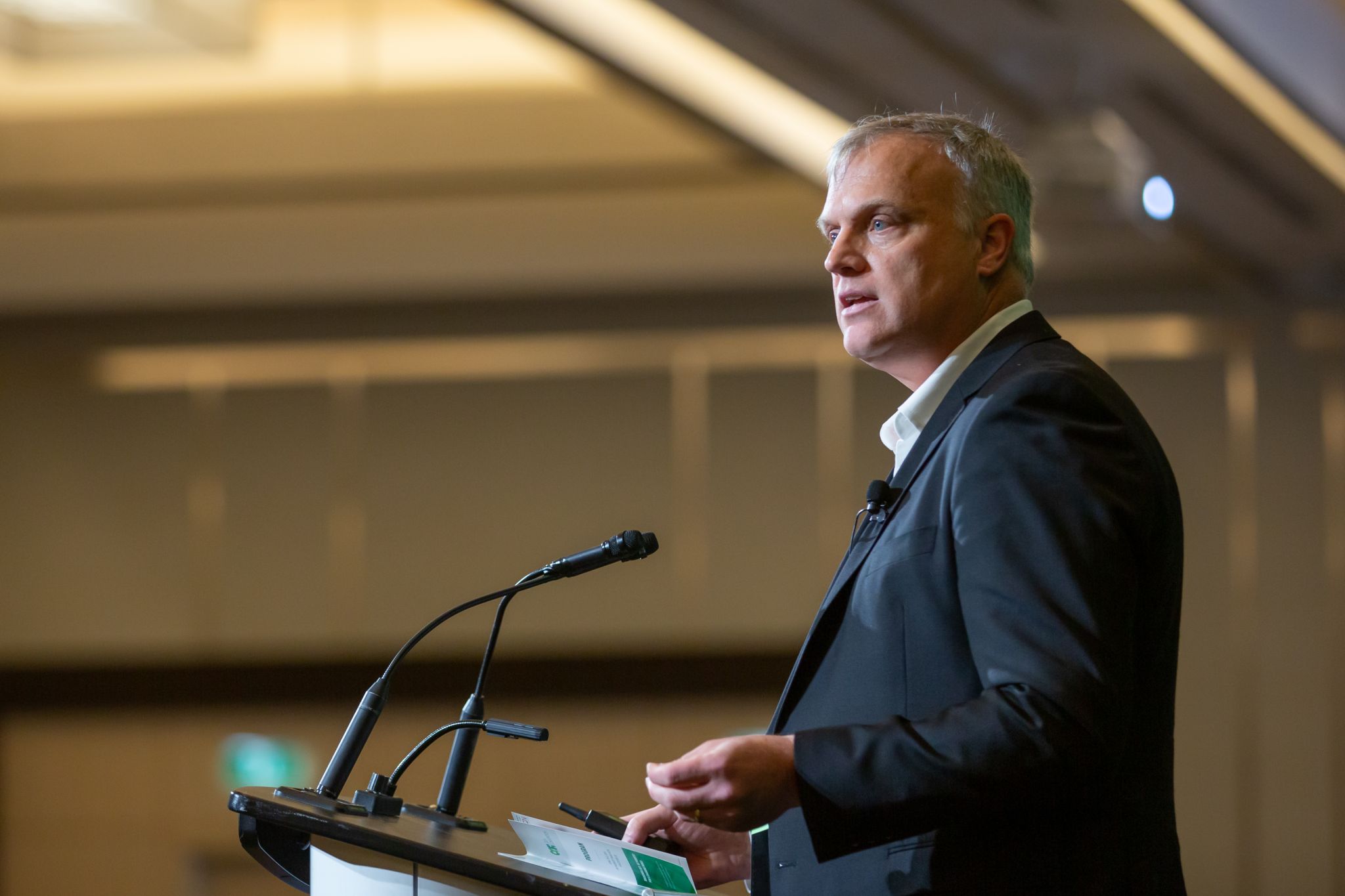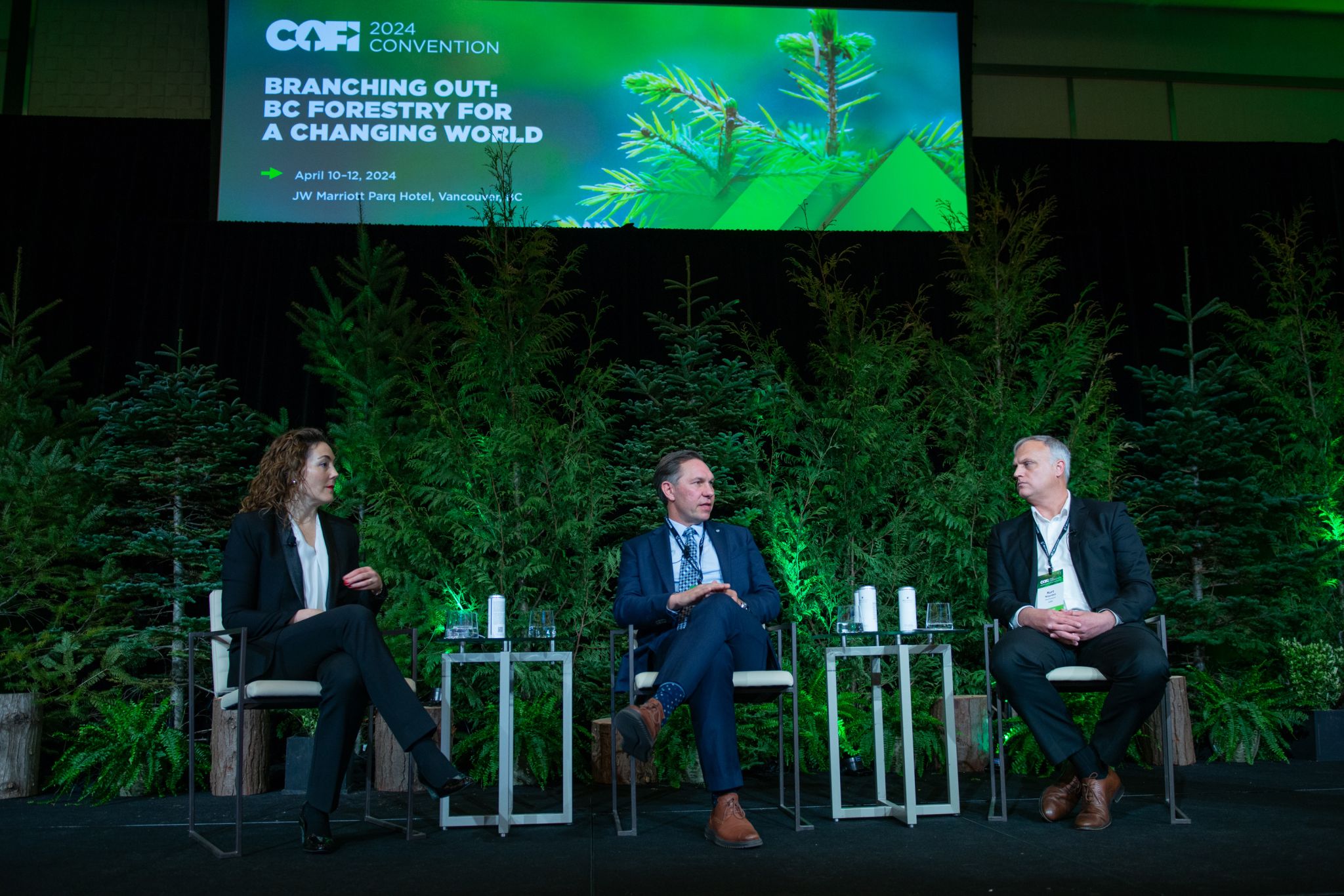Kicking off the first panel, VP and Chief Economist of COFI, Kurt Niquidet introduced the Forest Industry Economic Impact Study, highlighting the economic benefits of the sector in BC. Forestry as an economic powerhouse, with outsized benefits to the province and high-paying jobs linked to advancements in productivity thanks to $15.8 billion of investments into the sector over the last 10 years. Daryl Swetlishoff, Head of Research at Raymond James discussed capital flows and the need for further investment in forestry to ensure the future for those benefits for years to come. Kimberly Burns, partner at Dentons, underscored this. Challenges in profitability and turnaround time can deter private investors, particularly when there is uncertainty. Burns highlighted that the “narrative” matters to private equity, so companies need to lead with their story, highlighting collaborations with local communities and promoting the future opportunities to attract further private equity investment. In the Q+A, Burns and Swetlishoff affirmed that consistent government policy, sustainability measures and community engagement will be important to attract private investment into the forest industry. Both see potential, but reducing uncertainty, managing the narrative and defining ROIs that connect to social responsibility will be of importance moving forward.
During a Spotlight Session, Jason Krips, President and CEO of Alberta Forest Products Association (AFPA) and Louise Bender, VP People & Administration of Mosaic Forest Management spoke about building workforce resilience through fiversity. Reflecting on what attracted attendees to the industry, they introduced the Forest Sector Alliance that is rooted in inclusivity. The two presented a vision to position the forest sector as a desirable sector for all. With 17% of the workforce being women, 9% under the age of 24 and 15% being Indigenous, there is more work to be done. Cultural and psychological safety are fundamental to ensuring current and future workers experience a collaborative and enriching work environment. Where people can be the most complex part of any job, we need to advance diversity and inclusion from the boardroom to the forest floor. Leaders can provide opportunities for new stories to be told and heard, resulting in an inclusive environment that attracts new talent. The Forest Sector Equity, Diversity and Inclusion Alliance will provide more opportunities for collaboration and the exchange of best practices for the industry across Canada.
One of the most important discussions at the 2024 COFI Convention was BC’s Strategy for Stabilizing Fibre Supply. The President & CEO of COFI, Linda Coady asserted the importance of stabilizing fiber supply requires an “all hands on deck” approach. The Minister of Forests Bruce Ralston, the Minister of State for Sustainable Forestry Innovation Andrew Mercier, and the CEO of the BC First Nation Forest Council, Lennard Joe sat down together to discuss this critical issue. Minister Ralston noted that the lower volumes of AAC set by the Treasury Board are conservative, and they are working to surpass those targets. Minister Mercier shared that over the 12 weeks since he took on his role, he has been travelling to meet with industry and communities. He sees that the problems are province-wide, but many of the solutions are local.
Lennard Joe reinforced that Indigenous communities need to be involved at all levels. Joe furthered that, while a challenging topic, advancements for the industry must be built upon a foundation of Indigenous reconciliation and adhere to DRIPA. BC Timber Sales and First Nations are working on forest operations together, addressing the local impacts of BC Timber Sales policies on the ground. Increased revenue sharing, equity agreements and innovative technologies are a few of the methods required to build on this reciprocal collaboration. Minister Ralston wants to ensure that we don’t lose sight of the fact that there are forest companies in BC that go back more than 100 years, and the quality of the fibre and the beauty of BC timber is established and known across the world. We need to focus on the challenges in front of us, but we also can’t lose perspective of the opportunities to build on this positive reputation and help the forest industry continue to prosper. Minister Mercier reinforced that the forest sector is important to the province, and will remain important going into the future, so he is working on giving it a supportive environment. Lennard Joe shared that industry needs to be ready and willing to have tough conversations in order to move forward collaboratively with Indigenous communities, but also that those First Nations are looking to invest in the opportunities as well. They understand that for their community to prosper, the communities around them need to be prosperous as well.



